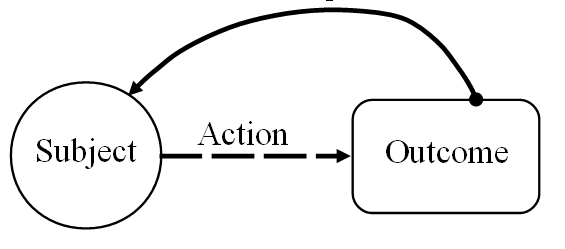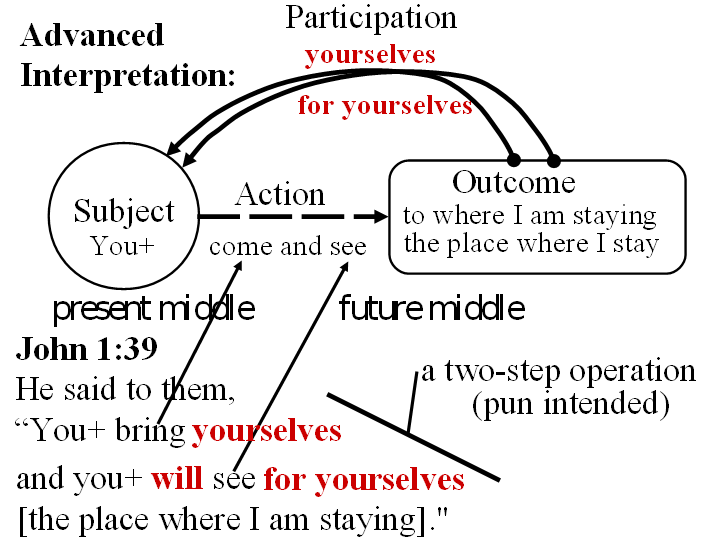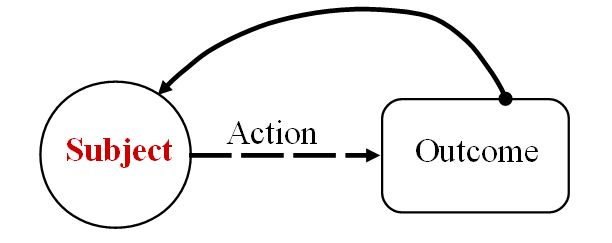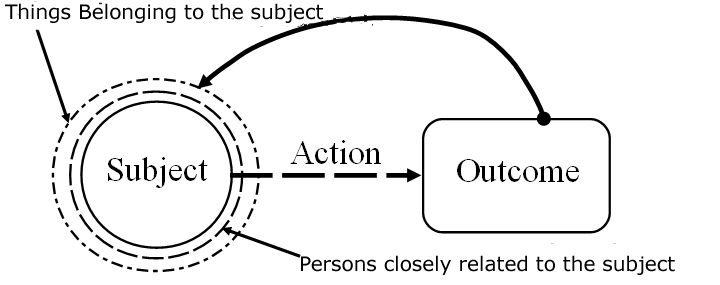The Friendly Fire Room Presents
Listen And See
Thank you Wanda Barlow for this great idea!
Pronouns Metaphors Errors Part 27
Pronouns Metaphors Errors Pt 27
Pronouns, Metaphors, and Errors
Message
May 17, 2015
Part 27
Scriptures
Hebrews 9.12
Hebrews 9.14
1 Peter 1.2, 18-19
1 John 1.7
Rev. 1.5
Rev 5.9-10
The Scriptures indicate that with “the blood” we see a more direct representation of the death( atonement) of Christ on the cross. The Scriptures indicate that with “the body” we see a more direct representation of the incarnation of God who became for us Man, who lived and finally died upon the cross in our behalf and in our stead. Both the blood and the body lead to the cross, but both are not one and the same representation.
Today, we will continue to look at Scripture that speaks of the accomplishments of great changes brought about within the believer by the efficacy of the blood and body of Christ Jesus, the means by which God has already made change possible.During the process I am also taking an opportunity (and a risk), by demonstrating that there are actually more frequent occurrences of figure uses in the New Testament than most of us realize.
You might not think so, but I have generally been
pointing out to you only those figures which have
a direct interest to our subject of discussion. Why? …in the interest of protecting your sanity
and mine from over-exposure to excessive detail,
and for the fact that at some point, too much
detail begins to detract-from rather than add-to
our ability to comprehensively interpret and
understand a text; and besides, it’s just pedantic.
So, I have no plan to make it a habit of getting into the level of detail we will be plunging into today.
I simply want to give you a better idea of the richness of precision that is already built into the original Greek text, waiting to be discovered.
The job of interpreting Scripture is not to bring
an archaic and primitive language to life
by bringing it up to the speed of our higher level
and advanced ways of modern thinking, as if
we presently have what could be called a superior
ability to communicate ideas and concepts. To the contrary, the true challenge that stands
before us is the difficult task of bringing the level
of our inferior language and thinking up to a better
place, to a level that God intended for us to
possess, in order that the Holy Spirit might have
more to work with within us, and so that we might
comprehend, understand, give expression to,
and specifically deal with the superior quality
of the original Greek text of the Bible.
Because of the inferiority of our present language,
we are not used to the kind of thinking and
communication that God has so richly provided
for us in His Word. For example, in order to get what’s going on with
figures of speech requires a sincere willingness to
expend effort to properly think about and evaluate
the text. Another good example of the challenge before us
can be seen in what we have been attempting to do
to better understand the Lord’s use of the middle
voice form.
This is but one of many grammatical devices used in scripture which are impossible to directly express in English, because our language has absolutely no corresponding means to do so.
In fact, since all people think by the use of their own words (which they understand them to mean), their language, and their vocabulary; the ability to think, develop ideas, and express one’s ideas is indeed limited to the extent of one’s own working vocabulary.
It continues to amaze me that something like the Greek middle voice, totally comprehended by the common masses during the days of Jesus’ earthly ministry, should so readily elude and frustrate us in our attempts to master its message. So, we’ll take another shot at that today as well.
Hebrews 9.12
NKJ Hebrews 9:12
Not with the blood of goats and calves,
but with His own blood
He entered the Most Holy Place once for all,
having obtained eternal redemption.
![]()
![]()
by means of
![]()
neither by means of blood of he-goats
Figure
![]()
nor [by means of blood] of young bulls…
[did He enter into the holies after having obtained redemption for Himself, as do the ordinary priests of God] The means of making it possible for an ordinary priest to enter into the holies was by having been redeemed by animal blood( sacrificial death( atonement)).
Implication:
The instrumental means of making it possible for an ordinary priest to enter into the holies was redemption, and the means of redemption was animal blood( sacrificial death( atonement)) acceptable to God.
Use of Figures:
neither by means of blood of he-goats
nor [by means of blood] of young bulls,
but to the contrary
by means of the blood of His own
The combination of the above clauses function as
a figure of speech, which is called ![]() meiosis;
a term which properly translates into English as, “the action involved in lessening or diminution,”
from
meiosis;
a term which properly translates into English as, “the action involved in lessening or diminution,”
from ![]() to make smaller.”
to make smaller.”
This kind of figure is used to call attention to the important identity of one thing [the blood( sacrificial death( atonement)) of God] by magnifying it in contrast to the quality of other things [blood of animals offered under the Law], making it of less importance, by a belittling comparison.
Blood( sacrificial death) of many animals, while being acceptable to God as the means of redemption, was far less important in eternal terms than the once-for-all-time blood( sacrificial death) of just one God-Man.
In significant contrast to many ordinary priests, the one God-Man remains in the presence of God. Only the most holy Man is allowed to remain in the most holy presence of God into the ages of the ages.
![]()
but to the contrary
![]()
![]() by means of
by means of
by means of the blood of His own definite article
![]()
![]() Figure
Figure
He once for all time entered
![]() Figure
Figure
into the holies ( the most holy place)
![]() Summary Statement ... Aorist Middle
Summary Statement ... Aorist Middle
after having obtained for Himself
![]() Figure
Figure
eternal redemption
Use of Figures:
He once for all time entered into the holies( the most holy place)
This is the use of a figure called ![]() heterosis, an action noun meaning, “the action
involved in exchanging one form of a particular
part of speech for another form.”
heterosis, an action noun meaning, “the action
involved in exchanging one form of a particular
part of speech for another form.”
He once for all time entered into the holies( the most holy place) Exchanging one form of a word to another form is accomplished by an intentional change of one of the forms of the word, such as its- voice, mood, tense, person, number, degree, or gender for another, so that a desired emphasis is obtained.
He once for all time entered into the holies( the most holy place) In this instance, the singular(.) number for the
noun, “the most holy place,” has been intentionally
changed to its plural(+) form, “the holies,” in order
to emphasize the fact that “the most holy place”
is the most important of all “the holy places” that
exist upon the earth.
Another example will help…
NKJ James 1.17
Use of Figures:…from the Father of lights,
![]() 1st genitive of origin
1st genitive of origin
…from the Father
![]()

from the Father
![]() 1st genitive of origin
1st genitive of origin
Definite Article
![]()
![]() 2nd genitive of origin
2nd genitive of origin
of the lights

from the Father of lights

from the Father of the lights (of the true Light)
Implication of Example James 1.17:
God the Father is the source (genitive of origin) of all light, but most importantly He is the source of the true Light.
I think you now can see that it might have been much better for all of us if I had merely said,“the holies is put for ( the most holy place).”
Back to Hebrews…
![]()
but to the contrary
![]()
![]() by means of
by means of
by means of the blood of His own definite article
![]()
![]()
He once for all time entered
![]() Figure
Figure
into the holies ( the most holy place)
![]() Summary Statement ... Aorist Middle
Summary Statement ... Aorist Middle
after having obtained for Himself
![]() Figure
Figure
eternal redemption
![]()
eternal redemption
![]() noun meaning “the means or instrument
by which release or deliverance is made possible;”
a ransom.
noun meaning “the means or instrument
by which release or deliverance is made possible;”
a ransom.
![]() verb meaning “to release,” “to set free,”
with the implied analogy to the process of freeing
a slave.
verb meaning “to release,” “to set free,”
with the implied analogy to the process of freeing
a slave.
In contrast to our present text: “and we had hoped that he would be the one who was going to liberate Israel” Luke 24.2.
![]()
eternal redemption
Note: in some languages simply speaking of “being set free” does not make sense without specifying the particular manner or circumstances involved (Louw and Nida).
For example: “to liberate Israel”, must be expressed; to cause Israel to be set free from foreign control or from a conquering oppressor, the power of Rome.
![]()
eternal redemption
![]() action noun meaning “the action
involved in liberation;” with the figurative sense
in mind, and not an act of engaging in a literal
monetary transaction.
action noun meaning “the action
involved in liberation;” with the figurative sense
in mind, and not an act of engaging in a literal
monetary transaction.
![]() action noun meaning “the one who
takes the action that makes liberation possible.”
action noun meaning “the one who
takes the action that makes liberation possible.”
Note: Here is where a figurative idea of redemption as“the paying a price to release” can be misinterpreted,
if taken in the literal sense that Christ actually engaged in
some kind of monetary transaction with a literal
conquering oppressor. A literal translation may also lead to the mistaken interpretation, which was widespread in the Middle Ages,
that in redeeming the believers, God actually paid
a price to the Devil. Again, misinterpretation of text intended as figurative,
forced to be taken literally, leads to serious doctrinal error.
You are not going to like the sound of the truth… …but the use of the idea of “redemption” is a
figure of speech meant by God to capture our
attention and stress the idea that (1) the need for
salvation is intensely real and powerful enough
to be represented by the figure of a conquering
oppressor, and that (2) salvation does not come
without a heavy cost, it is available to us by
means of great personal expense of “the One who takes the action that makes
liberation possible.” Also the figure of “ransom,” which is an ugly
notion, is not a literal price paid to an identifiable
entity holding literal slaves captive under its
oppressive power, but as a figure to help us
understand the nature and the quality of the
condition into which the fall of man has put all
mankind. Nevertheless, this figure is the perfect“representation” of the idea of the enormity of the
debt of sin; so much so, that even Jesus, after He
had suffered the whole penalty due as the
consequence of our sins, cried out,
“It is paid in full.”
Now, we need to back up a step and look at this
Word says about the means by which Jesus
obtained this eternal redemption for Himself,
to see how it differs from the idea of the ordinary
priest having gained redemption for himself in
order to enter the most holy place.
![]()
but to the contrary
![]()
![]() by means of
by means of
by means of the blood of His own definite article
![]()
![]()
He once for all time entered
![]() Figure
Figure
into the holies ( the most holy place)
![]() Summary Statement ... Aorist Middle
Summary Statement ... Aorist Middle
after havingobtained for Himself
![]()
eternal redemption
![]() Summary Statement ... Aorist Middle
Summary Statement ... Aorist Middle
after having obtained for Himself
Concept of the Middle Voice:
Participation


NKJ John 1:39
He said to them, "Come and see."
They came and saw where He was staying,
Note: The use of this process forces us to follow-through to discover the complete idea.


Active-Voice Verbs:
This kind of verb describes the subject as acting in a way which places an emphasizes upon the action.
Participation

Middle-Voice Verbs [Direct]:
This kind of verb describes the subject acting with the intent to participate in the resulting outcome of the action; and the emphasis is placed upon the subject producing the action.

Middle-Voice Verbs [Indirect]:
This kind of verb describes the subject acting so that things which are in relationship with the subject are the intended participants in the outcome of the action. We must discover from the context how the action and the things are related to the subject, or from the character of the verbal idea itself.
NKJ Hebrews 9:12
…having obtained eternal redemption.
![]()
after having obtained for Himself ....aorist Middle
So, a better( more comprehensive) translation than this would recognize that this participle is speaking in the indirect middle voice saying,…
“…after having obtained eternal redemption for all those individuals who belong to Him [God] by means of the law of the adoption as adult children of the Father, and the law of Lordship in relationship with Christ Jesus.”
Many will be surprised on the Day of Judgment when they discover
that it was just as the Word of God says;
only the righteousness of Christ is able to save you.All men are sinners and no one can save himself.
God is just, so He must punish sin;
but He is also merciful, moreover gracious,
and offers His Son as the perfect sacrifice
in order to purchase a place for you in heaven,
which He offers to you as the free gift of eternal life.
Jesus is God Incarnate,
In order to pay the debt of our sins, He came from Heaven, having been sent by the Father,
where He lived a life of perfect obedience to the Father
even unto the shameful death upon the cross
in order to pay the debt of your sins.This gift must be received by faith,
believing that Jesus’ perfect life and Cross Work
was His complete and necessary Atonement
for your sins, in your behalf.
Faith is a gift that comes by the Power of God the Holy Spirit working in a person’s innermost being.
Only the power of God can open your heart to the willingness to have the void within it filled
with the presence of Christ by His Spirit.The Holy Spirit has the authority and power to quicken your dead spirit, to make it come to life.
Only the life of His Spirit’s quickening of your heart will allow the Gospel message of salvation to even make sense to you, to truly “hear” the message and give you the ability,
as the Holy Spirit bears witness to Jesus,
to recognize your need for forgiveness and restoration, and gain the desire of your heart to be favorably inclined to want to receive Christ as your personal Lord and Savior.If you have not done so before this moment,
ask Jesus to forgive you your sins,
tell Him you’ve stop trying to be your own savior,
and ask Him to come into your life right now,
and to give you eternal life. Then, in faith believing,
thank Him for the gift that He is giving you,
the one He paid for in full in your place,
in Jesus’ name,
AMEN
Copyright May, 2015
Rev. Jim Craig
All Rights Reserved
Bibliography
Agnes, Michael and Charlton Laird (eds.). Webster’s New World Dictionary and Thesaurus. New York, NY: Macmillan, 1996.
Aland, Kurt, Matthew Black, Carlo M. Martini, Bruce M. Metzger, and Allen Wikgren (eds.). The Greek New Testament, 4th rev. ed. Germany: Biblica-Druck, 1994.
Benner, Jeff A. The Ancient Hebrew Lexicon of the Bible. College Station, Texas: Virtualbookworm.com Publishing Inc., 2005
Bullinger, E. W. Figures of Speech Used in the Bible; Explained an Illustrated. Grand Rapids, Michigan: Baker Book House, 2007.
Chapman, Benjamin. Greek New Testament Insert. Grand Rapids, Michigan: Baker Book House, 1977.
Dana, H. E., and Julius R. Mantey. A Manual of the New Testament. Canada: The Macmillan Company, 1957.
Louw, Johannes P. and Eugene A. Nida. Greek-English Lexicon of the New Testament Based on Semantic Domains. New York, NY: United Bible Societies, 1989.
The ESV Study Bible. Wheaton, Illinois: Crossway, 2011.
Metzger, Bruce M. Lexical Aids for Students of New Testament Greek. Princeton, New Jersey, 1977.
Wikipedia contributors. "Xenophon." Wikipedia, The Free Encyclopedia. Wikipedia, The Free Encyclopedia, 15 Aug. 2014. Web. 19 Aug. 2014.
Wuest, Kenneth S. The New Testament; An Expanded Translation. Grand Rapids, Michigan, 1992.
Wuest, Kenneth S. (Revised, Donald L. Wise). The Practical Use of the Greek New Testament, rev. ed. Chicago, Il: Moody Press, 1982.
Walsh, J. Martyn and Anna Kathleen Walsh. Plain English Handbook: A Complete Guide to Good English, 7th rev. ed. Cincinnati, Ohio: McCormick-Mathers PublishingCompany,1977.